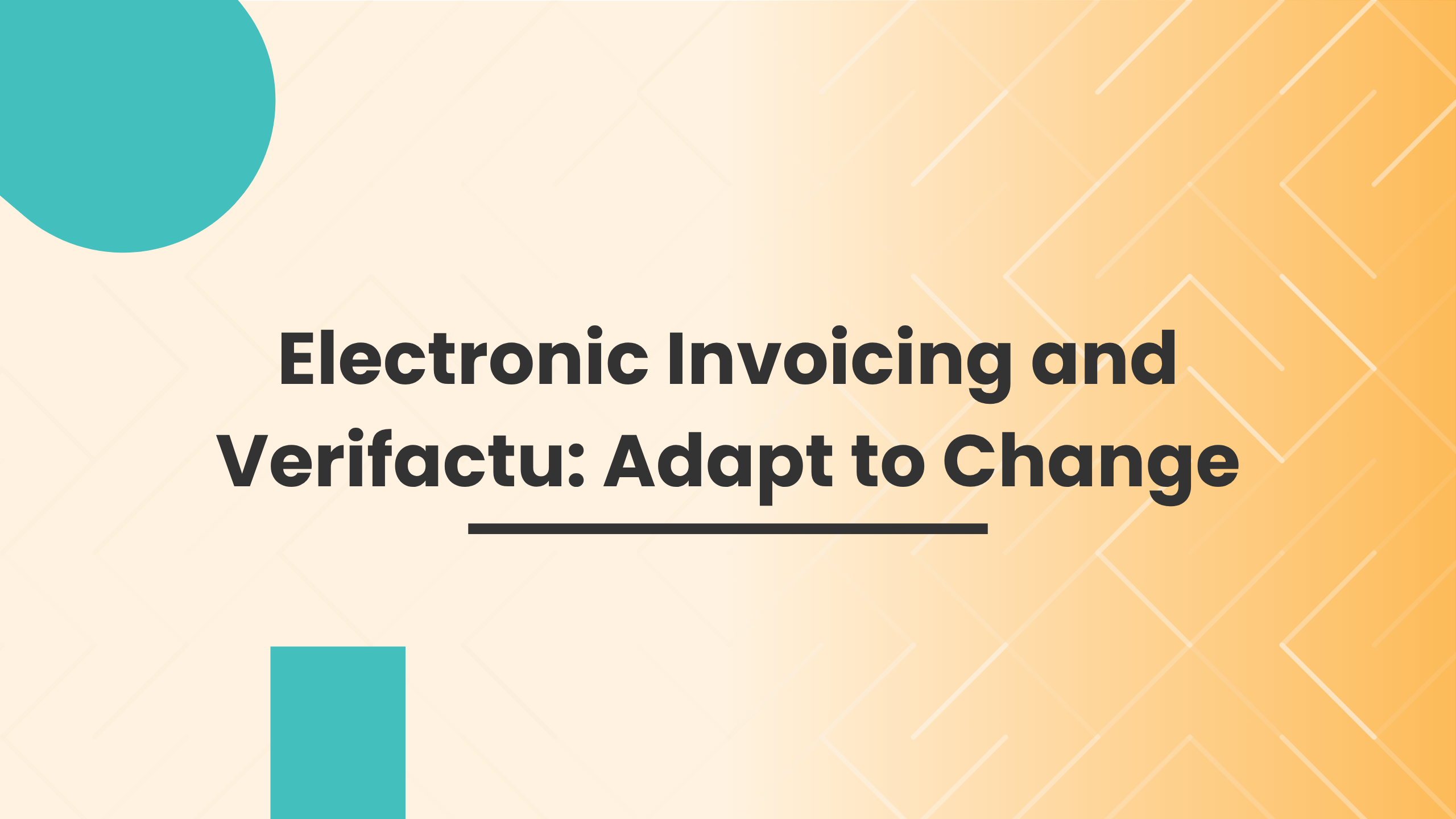Electronic Invoicing and Verifactu: Adapt to Change

Content:
In 2026 , all businesses and self-employed individuals in Spain will face a new era in billing management with the introduction of mandatory electronic invoicing and the tax reporting system known as Verifactu.
This regulatory change seeks to digitize processes, increase tax transparency, and combat fraud . In this post, we present a summary of the key aspects you should know to adapt to this new environment.
What is the Mandatory Electronic Invoice?
An electronic invoice is a document generated in digital format , with specific authenticity and integrity requirements. Unlike a PDF sent by email, this format interacts with public or private platforms to ensure transaction traceability. Although it will initially focus on B2B (business-to-business) operations, specific sectors with high economic significance must also invoice end customers electronically.
What is the Verifactu System?
Verifactu is the new digital invoicing system that will require immediate, real-time submission of invoices to the Tax Agency (AEAT). This means that the invoicing systems you use must meet strict anti-fraud certification requirements. With this measure, the Treasury seeks to guarantee the integrity, preservation, and traceability of invoicing records.
Who is exempt from Verifactu?
Companies in the Basque Country and Navarre , those covered by the Special Regime for Agriculture, Livestock and Fisheries, and other specific exemptions according to the regulations.
Benefits and Challenges of Implementation
Benefits: Reduced paper usage, administrative simplification, and increased efficiency in tax management.
Challenges: Adapting billing systems to meet new regulatory requirements, which can entail additional costs for many companies. Penalties for Non-Compliance
Failure to comply may result in significant penalties:
Use of uncertified software: up to 50,000 euros per year.
Failure to issue electronic invoices when required: up to 10,000 euros.
Steps for Adaptation
Audit your current systems: Make sure they comply with Verifactu and e-invoicing requirements.
Review your internal protocols: Minimize errors that could lead to penalties.
Plan ahead for key dates: The mandatory filing period begins in January 2026 for some taxpayers and in July for others.
The impact of this transition goes beyond regulatory compliance. It represents an opportunity to modernize operations and adopt digital tools that optimize business management. At InnoTaxes, we want to help you, which is why we offer our invoicing , tax , and accounting software to simplify your management and comply with regulations.
Contact us if you have any questions or send us a WhatsApp message , and we'll give you personalized assistance.